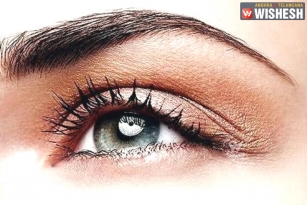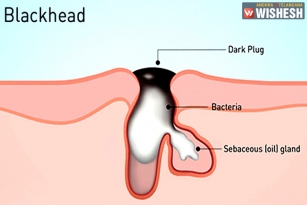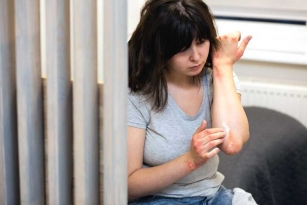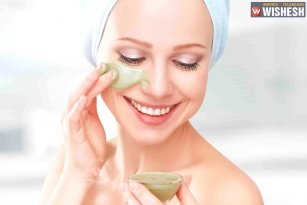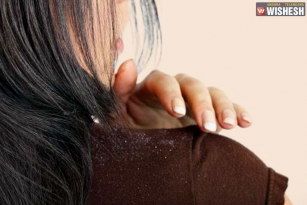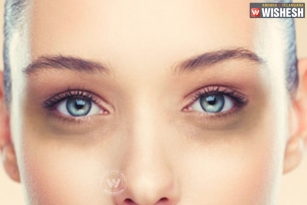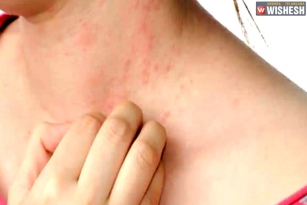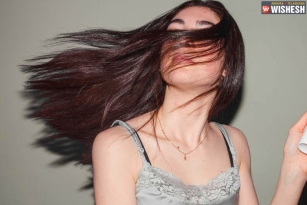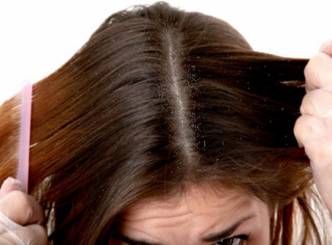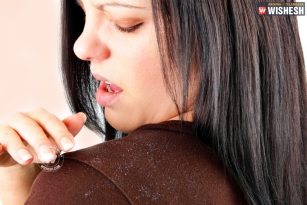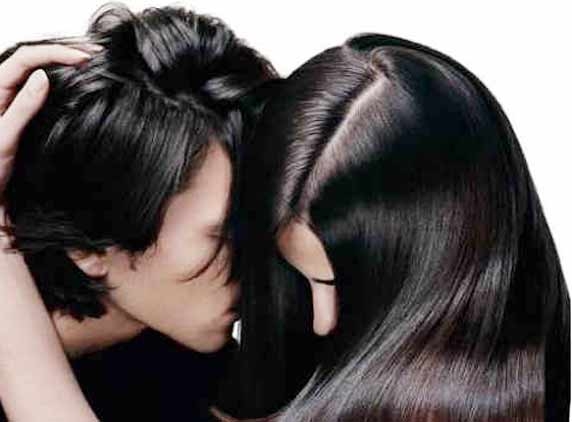
Beauty expert Shahnaz Husain tells you how to tackle this problem
Dandruff is a common scalp condition. In its mild form, it consists of loose white flakes, which fall off and may be noticed on the shoulders and back. Sometimes, the flakes may be yellowish in colour. Even mild dandruff can be accompanied by itching. Sometimes, the scales, along with oily secretions, tend to adhere to the scalp, which people commonly refer to as "sticky dandruff." In winter, due to lack of moisture, the scalp may become dry and flaky. This kind of dandruff is the loose kind, which does not stick to the scalp.
Hot oil therapy is a useful home treatment for the prevention and control of common dandruff. It also relieves dryness of the scalp and prevents clogging of the pores of the scalp.
Heat olive oil and apply on the scalp with cotton wool. Rub gently to dislodge the flakes. Then dip a towel in hot water, squeeze out the water and wrap the towel around the head, like a turban. Keep it on for 5 minutes. Repeat the hot towel wrap 3 or 4 times. This helps the hair and scalp absorb the oil better. Leave the oil on overnight. The next morning, apply the juice of a lemon on the scalp and wash the hair after half an hour. This can be done once or twice a week.
The hair should be washed at least three times a week, using less shampoo and rinsing well with water. Use a mild herbal shampoo. Half an hour before shampoo, apply two tablespoons vinegar on the scalp and massage it lightly into the scalp. After shampoo, add two tablespoons of the vinegar to a mug of water and use as a last rinse.
For dandruff, add 5 drops of Rosemary essential oil to 50 ml rose water. Shake well and keep in a glass bottle with a tight fitting lid. Apply this on the scalp after shampoo, using cotton wool and leave it on. Essential oils should never be used by themselves.
Fenugreek (Methi) seeds: Grind one tablespoon of methi seeds coarsely and soak in two cups of cool water. Leave it overnight. Strain and use the water as a last rinse.
Neem leaves: Add two handfuls of neem leaves to four to five cups of hot water. Let it stand overnight. Next morning, strain the liquid and use it to rinse the hair. It relieves itching and keeps the scalp healthy and free from infections. It is useful in preventing dandruff. Make a paste of the soaked neem leaves and apply on the scalp, rinsing off with water after half an hour.
Weekly henna treatments are very useful: They help to restore normal balance and prevent dandruff. They are helpful in general hair care too. Add 4 teaspoons each of lemon juice and coffee, 2 raw eggs, one teaspoon methi seed powder and enough tea water to the henna powder, mixing it into a thick paste. Make tea-water by boiling used tea leaves again in enough water, cooling and straining the liquid. Apply the henna on the hair and wash off after an hour. If you do not wish to use egg, add more tea water. This not only helps to remove dandruff, but conditions the hair, adding strength, body and shine to the hair.
If its is a case of severe dandruff, combs, brushes, pillow covers and towels should be washed daily in hot soapy water, adding a few drops of an antiseptic solution.
Include fresh fruits, raw salads and sprouts to your daily diet. Drink 6 to 8 glasses of water daily. Add lemon juice to a glass of water and have it first thing in the morning. Some amount of daily exercise is also necessary. However, before adopting any diet or exercise programme, consult your doctor.





